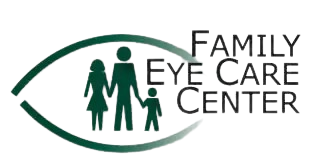Conditions
-
Commonly called “lazy eye,” amblyopia can be treated successfully if detected early enough in childhood.
-
Often mistakenly called “stigmatism,” this common vision problem can be corrected with eyeglasses, contact lenses or refractive surgery.
-
Red, swollen eyelids and crusty debris at the base of your eyelashes are signs you may have blepharitis.
-
Cataracts are a common cause of vision loss after age 55. Surgical correction is safe and effective, and offers several new options for better vision.
-
AIDS or other diseases that affect your immune system can increase your risk of serious eye problems from cytomegalovirus (CMV) infection.
-
People with serious vision problems from an eye injury or disease affecting the front surface of the eye can often regain vision with a cornea transplant.
-
If undetected or uncontrolled with medication, diabetes can cause serious vision loss, even blindness.
-
Are you bothered by red, itchy eyes? You may have allergies.
-
“Floaters” are usually normal and harmless. But if you notice a sudden increase in floaters or floaters accompanied by flashes of light, see your eye doctor immediately.
-
Also called farsightedness, hyperopia is a common vision problem that can cause headaches, eyestrain and trouble reading.
-
This eye disease causes the cornea to grow thinner and bulge forward in an irregular cone-shape. Treatment options range from gas permeable contact lenses to a cornea transplant.
-
This age-related problem is the leading cause of vision loss and blindness in Americans age 65 and older.
-
Also called nearsightedness, myopia is a very common vision problem, affecting up to one-third of the U.S. population.
-
You’ve heard of high blood pressure, but what about high eye pressure?
-
Pingueculae and pterygia are funny-looking words for growths on the surface of your eye.
-
This acute and contagious form of conjunctivitis is particularly common among preschoolers and school-age children.
-
Ptosis is a drooping eyelid. Surgery is usually required to correct this problem.
-
A detached retina is a medical emergency. Learn the warning signs of a retinal detachment and what you can do to avoid permanent vision loss.
-
These inherited disorders, commonly abbreviated as RP, cause progressive peripheral vision loss, night blindness and central vision loss.
-
This common problem is simply an infected lid gland. Learn how to prevent and treat styes.
-
This inflammatory eye disease can cause permanent vision loss if not promptly treated.


